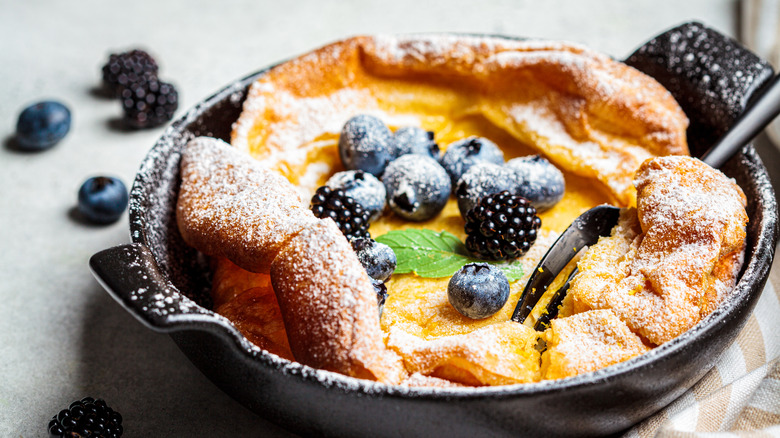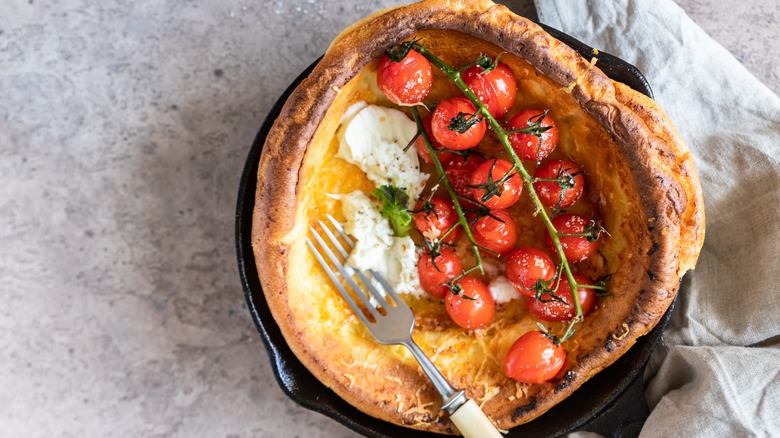Why Is It Called A Dutch Baby?
Fluffy, sprinkled with powdered sugar, and served in a cast-iron skillet, Dutch babies are unlike any other breakfast food. As Atlas Obscura explains, most Dutch baby recipes call for a simple mixture of eggs, flour, sugar, and milk. However, once cooked, the topping options for a Dutch baby are near-endless. Some go the sweet route, with the traditional powdered sugar and maybe some fruit, while others go savory, like cookbook author Claire Tansey, who told The National Post that she adds cheddar cheese to her Dutch babies' batter.
If you've never tried a Dutch baby, Tansey describes the dish as "sort of like a soufflé and an omelet get together." She also likens it to a popover or a Yorkshire pudding. In fact, Dutch babies are so closely related to Yorkshire puddings that, in 2018, when The New York Times posted a photo of a Dutch baby, scores of British responders protested the item in question was nothing but a Yorkshire pudding — and that it should definitely not be served with sweet accompaniments, only savory. However, The Telegraph did point out that there are key differences between a Dutch baby and a Yorkshire pudding, beyond the toppings. Dutch babies have their size and the cast-iron pan as differentiators, just to start.
So, if it's not just a knockoff of Britain's Yorkshire pudding, where did the unique and true Dutch baby come from, and how did it get its name?
The Dutch baby hails from Seattle
With a name like "Dutch baby," you might expect this dish to hail from the Netherlands or, if not, at least from the European continent. However, many credit historic Seattle café Manca's as the creator of the dish. According to the Manca's Café website, the restaurant opened in the late 1800s and the founder, Victor Manca, created the Dutch baby soon after, receiving fame for the dish over the following decades.
As for the name, supposedly Manca based the recipe off a similar German pancake recipe, but one of his daughters couldn't pronounce "Deutsch," a word that refers to the German language, and so the name was simplified to "Dutch." As of 1942, the café owned the trademark for the name "Dutch Babies."
Sadly, the Manca's restaurant no longer exists. The café moved around Settle several times over its long life, before the last location was finally closed and converted into a Starbucks, in 1998 (per The Seattle Times). Luckily, the Manca's legacy lives on in the Dutch baby.

